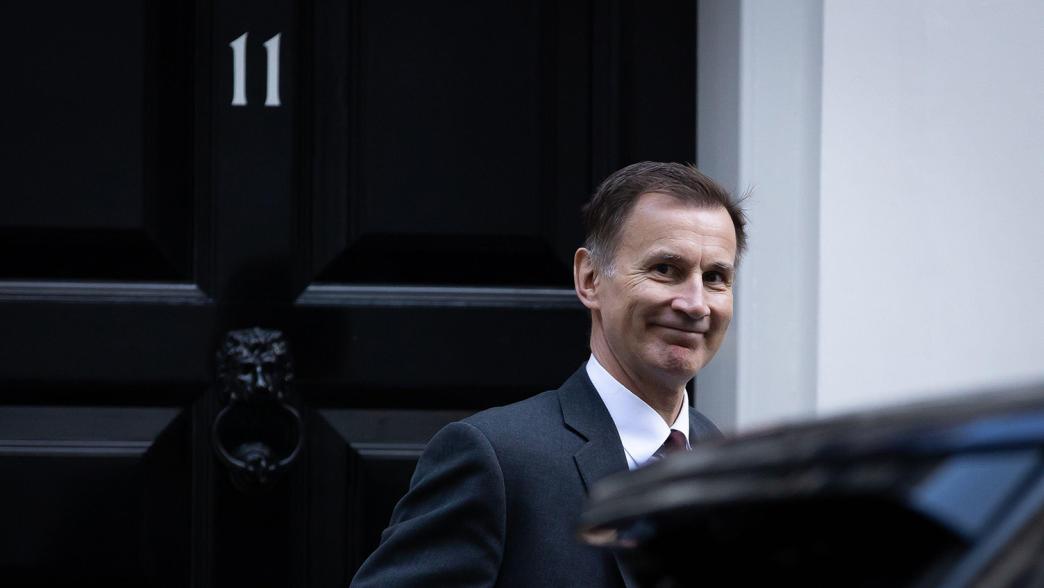A message to Jeremy Hunt: calling off the budget would be good for government
Two fiscal events are tempting for chancellors but bad for government.

After Jeremy Hunt announced the date of the next budget, Olly Bartrum warns that government decision making is not helped by a relentless schedule of fiscal events
Jeremy Hunt has announced that the budget will take place on 6 March, 2024. This means that the government gave itself only four working weeks between the autumn statement and beginning formal preparations for the chancellor’s next major set-piece event. In practice, many Treasury officials will have been using that time to advise the chancellor on what date the budget should be held.
The IfG often complains about the relentless schedule of fiscal events. The twice-a-year timetable incentivises officials to come up with tweaks to tax and spending plans that might make for good lines in the chancellor’s speech but end up increasing the complexity and uncertainty of the wider system. Committing to only one fiscal event a year – and a slower pace of fiscal decision making – would help a government willing to take that step.
Fewer fiscal events would enable greater strategic thinking
The Treasury is packed with highly skilled civil servants and is a department – unlike most in Whitehall – which possesses a huge amount of information on the whole of government. Given the highly political nature of its work (who should be taxed and how should government spend the money raised), it is acutely attuned to the priorities of the government of the day. It also has a good overview of other government departments: the outcomes they are trying to achieve, how much money they spend, and some sense of how effective that spending is in achieving desired outcomes.
But Treasury officials rarely get a break to breathe between one fiscal event being wrapped up and the next being announced. Formally, two fiscal events a year means 20 weeks of work. Yet much of those other 32 weeks (assuming no-one takes any holiday) will, in practice, be spent working up announcements for the next yet-to-be-announced fiscal event.
This creates an unwelcome mindset both across government and in the Treasury itself. Fiscal events are necessarily adversarial: departments are negotiating with the Treasury and competing against one another. There is little time – and too much pressure – to consider opportunities for working in collaboration with other departments. For a junior Treasury official keen for promotion, getting a policy idea into a budget can become a time-consuming incentive. The chancellor will love a small (and inexpensive) measure – for example a £10m competition for car batteries that they read about in WIRED – because it can be announced in the speech and will be within spending limits. At an organisational level this translates into a mindset of churning out small but largely inconsequential policies. Tellingly, Jeremy Hunt boasted about having 110 'growth measures' at the autumn statement.
Moving to one event a year would free up time for these hard-working officials and present them with different incentives. They could use their uniquely broad knowledge of the workings of government to identify opportunities for cross-Whitehall collaboration and/or work with departments to develop long-term strategies for their respective policy areas.
Reducing the number of fiscal events would lead to a less incremental approach to policy making
Adjusting to revised forecasts so frequently also makes for incremental policy changes. As we have documented in previous research, this leads to lots of ad-hoc ‘tinkering’, especially with the tax system. This increases the complexity of the system and reduces efficiency. It also produces high levels of uncertainty for both taxpayers and providers of public services.
But it also denies a chancellor of the opportunity to implement ‘big bang’ reforms. Moving to a slower pace of decision making would allow the chancellor and the Treasury to take a longer view of the direction of the economy and public finances and implement more thought-through, larger packages of reform. This should be attractive as a way to increase the quality of policy making.
But it should also be attractive politically. Even for a government determined to deliver tax cuts, using each little bit of fiscal headroom to fund successive giveaways is not obviously a better strategy (economically or politically) than letting that headroom build up to allow, for example, a much more substantive cut to income tax rates.
With an impending general election the chancellor is understandably seizing on the chance to make headlines – and announce policies designed to boost electoral prospects. Hunt won’t be heeding our advice, but whoever wins the election would do well to think about the impact that their desire for announcements has on the quality of decision making. Slowing down would be an easy, and smart, step to take.
- Topic
- Policy making Public finances
- Keywords
- Tax Budget Public spending Public spending
- Political party
- Conservative
- Position
- Chancellor of the exchequer
- Administration
- Sunak government
- Department
- HM Treasury
- Public figures
- Jeremy Hunt Rishi Sunak
- Publisher
- Institute for Government